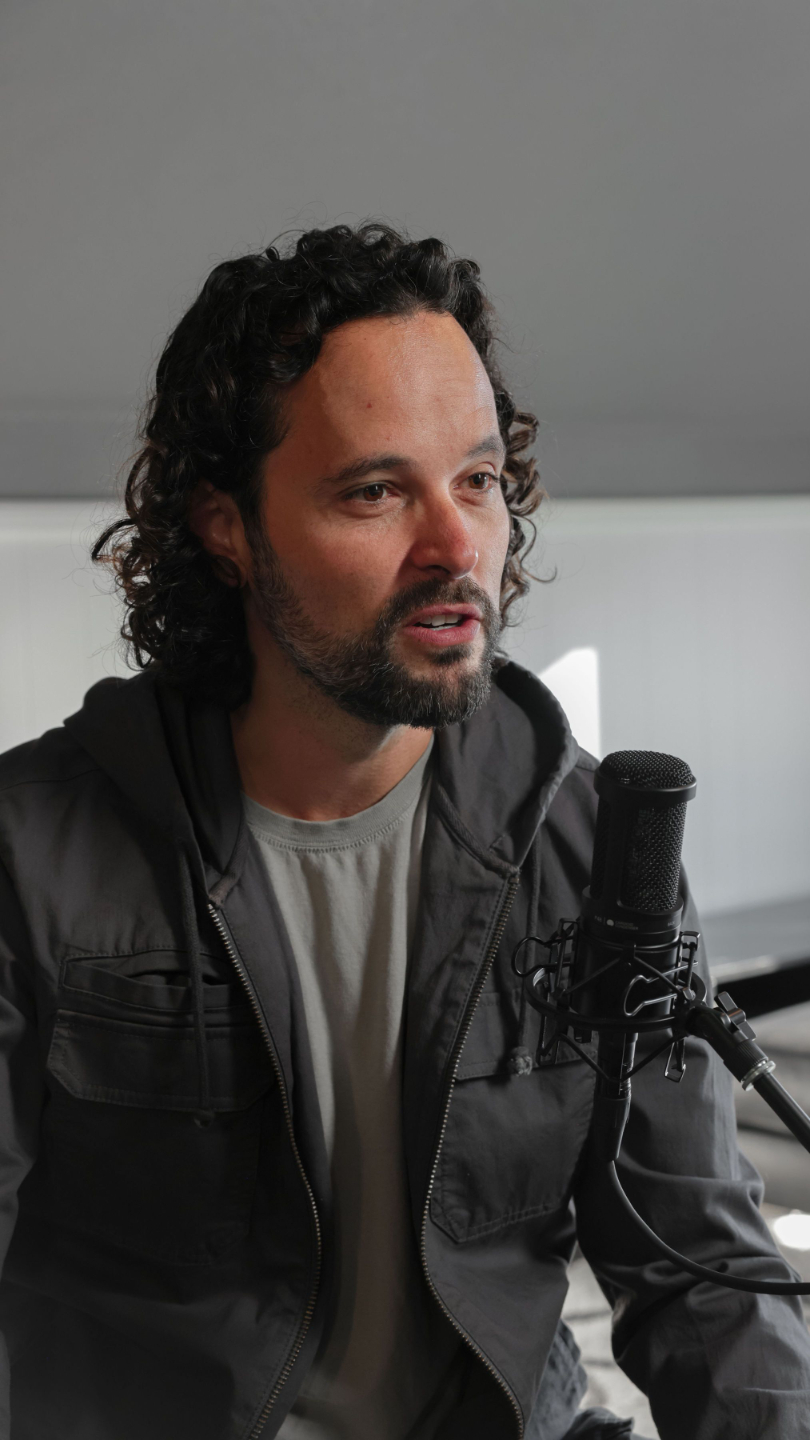The First Move Every Better Husband Makes: Full Ownership
The Power of True Ownership
Have you ever tried to apologize to your wife and added something like, I'm sorry I did that, but you did this too. Did you notice the problem with that statement? It's subtle and maybe you don't even realize that you're doing it too. What's important about it is this, anything you say after the word but takes away from what you just said.
It minimizes it, it cancels it out. It'd be like me saying to you, you're a great guy, but, or, I love how you handle that, but the moment you do that. Your ownership disappears, and when that happens, your apology doesn't bring you closer. It actually puts your wife right back on guard. It's like reaching out with one hand and pointing a finger with the other.
In today's episode, I'm talking about one of the most important skills in any relationship. True ownership. If you want to change your marriage and be a better husband, this is where it starts with you owning your part no matter what she's doing. Let's get started.
Welcome to Better Husband Podcast
Welcome to Better Husband, the podcast that helps you answer the question, how can I be a better husband? I'm Angelo Santiago, a men's marriage and relationship coach, and every week I bring you practical insights to help you improve your marriage and become the best husband you can be.
The Moment I Almost Missed My Wife—and What I Did Instead
Let me start with something that just happened the other day.
I got home after being away for a few hours. I was genuinely excited to see my wife. I walked in ready to connect, but she was on a work call. I tried to say hi, but she was busy and just kind of smiled and waved, and I didn't really feel like I got the connection I wanted. Then once she got off the call, I was already deep in the kitchen, making myself lunch.
I was hungry, distracted, and not present. She came over and tried to connect with me and I did not meet her. And the moment just passed and we just went our separate ways with things that we had to take care of. Later I realized we were kind of distant and I wanted to do something to bring us back together.
I had two options. I could say, Hey, I'm sorry I wasn't present when we were in the kitchen, but when I walked in earlier, you didn't connect with me either. Technically that's true, but emotionally that's disconnected. That's not ownership. It's blame disguised as accountability. Instead, I chose to say, Hey.
I'm sorry I didn't connect with you when you came over. I was hungry and distracted and I see how I missed you in that moment. No, but no expectation for her to own her part. Just me standing in mine.
Understanding Relational Integrity
Now, here's something I want to call out. In the past I wouldn't have even noticed that moment. I would've stayed focused on what she didn't do.
I would've told myself, well, she ignored me first and felt totally justified in not showing up. But what I've learned is this, every time I withhold presence or affection as a reaction, I'm not leading in my relationship. I'm just reacting to it and reacting never brings us closer. In relational life therapy, we talk about it in this way.
You take a hundred percent responsibility for your 50% of the relationship. That means you don't wait for her to go first. You don't condition your apology on her behavior, and you don't need to be the bad guy or the good guy. You just need to be the honest, grounded, relational guy. This is what relational integrity looks like.
Relational integrity means you keep your side of the street clean regardless of what your partner does. It's about showing up with grounded responsibility even when it feels one-sided. Terry real calls this managing your end of the seesaw. You take full ownership of your behavior, words and tone, not just when things are good, but especially when they're not.
You don't wait for her to apologize first. You don't match her energy or mood. You don't use her bad day as an excuse to have one too. If you show up, well then it's a good day for the relationship period.
This kind of ownership takes maturity. It takes emotional clarity, but most importantly, it takes intention and lots of practice. We weren't raised to think this way. Most of us were taught to defend, to argue our case, to make sure we weren't the one to blame. But RLT flips that because we're not trying to win an argument.
We're trying to build a relationship that feels safe and solid for both people.
The Trap of Conditional Apologies
Now, let's talk about the trap. Most of us fall into without even realizing it, we think we're taking ownership, but we sneak in a, but I'm sorry, I yelled, but you kept interrupting me. I know I overreacted. But you started it. That might feel like ownership, but it's not the moment you add that, but you cancel out everything you said before it.
You're not owning, you're defending. It might feel honest. It might feel fair, but it pushes your wife further away because instead of taking responsibility, you're shifting it. Here are a few more examples of how but shows up. I'm sorry. I forgot to call, but you didn't remind me, or I'm sorry I snap, but you were already annoyed or, I know I shut down last night, but you always come at me sideways.
Every one of those cancels the apology, every one keeps the wall up. Now, let me be clear. Taking ownership doesn't mean taking all the blame. It definitely doesn't mean letting yourself be walked all over. It just means this, I. You see your impact, you own your part, you clean it up. That's what a better husband does.
He sees his impact and takes action. That's integrity. I. That's maturity. And let me make something else clear. You can take ownership and still hold boundaries. You can say, I was wrong for how I spoke to you. And also believe that what upsets you was valid. Clean ownership doesn't erase your experience.
It just makes space for hers too, and that's what creates trust. Not because you gave in, but because you chose connection over control.
A 3-Step Ownership Practice That Builds Trust
Here's a quick framework you can try in your own relationship. This is called the ownership check-in. Number one, what did I do? Be specific. No minimizing, no justifying. Number two, how might she have felt when I did that? Take a guess. This is empathy. And number three, what do I want to do differently next time?
It's not about getting it right every time, but it is about trying to get better the next time. You can even try writing this down at the end of the day and keep a small journal or just type it in your notes app. What did I do today that helped us connect? What did I do that created disconnection?
What can I try differently tomorrow? When you take ownership in this way, she doesn't feel like she has to defend herself. You also show her that you're able to take responsibility and that you care about how your actions affect her.
Why This Isn't Just for Her—It’s for You Too
And let me say this. When you take this kind of ownership, it's not just good for the relationship.
It's good for you too. You stop second guessing yourself. You stop holding resentment. You stop carrying shame because now you're proud of how you're showing up. And that confidence, that groundedness, that's what your wife feels from you, even more than your words. Another thing we teach in RLT is that every break in connection needs a repair.
Ownership is how we start that repair. It's how we close the gap and someone has to go first, not because they're the one that made the biggest mistake, and not because it's their fault, but because they want to, because they care, and because they're putting the relationship first. So I want to ask you these three questions for you to think about.
Where are you half owning something in your marriage right now? Where are you sneaking in a "but" and minimizing your part? And what do you think would happen if you just owned your part fully? And if you're not sure what your part is, that's okay. Start small. Just pick one moment, one tone of voice, one sigh, one brush off, and own it.
You don't have to solve the whole pattern today. You just have to be willing to move first.
Your Weekly Challenge: Own One Moment—Fully
Your challenge this week is simple. Take full ownership of one moment this week without needing your wife to do the same. No conditions, no, but just take responsibility and leave it there. Don't dilute it with any excuses, and if she does the same, that's a bonus, not a requirement. Say something like, Hey, I realized I was short with you earlier.
That's on me. I wanna do better next time. Then stop talking. Maybe she accepts your bid for connection. Maybe she's still upset about it and this doesn't change anything. Maybe this is the start of a new way for both of you, and it'll take some time for trust to be rebuilt. Whatever it is, let it be. And if you need to practice what you'll say out loud first, write it down or speak it into a mirror.
Get used to what clean ownership feels like coming out of your mouth. 'cause once you do, it does get easier and it starts to become a part of who you are and how you behave. Let me say this again. Doing this doesn't mean she's going to receive it. Well, this doesn't mean she'll immediately respond with softness, but that's okay.
Your job is to lead the repair, not to control the outcome. That's what a better husband does. He leads with relational integrity and he lets that be enough.
Let’s Review & Next Steps for Being a Better Husband
Let's review what we covered today. When you add a, but to your apology, you take away the impact of your words. True ownership means you don't blame, defend, or wait for your wife to go first. You just take responsibility for your part. And relational integrity is about keeping your side of the street clean, even if your partner doesn't.
If you showed up well today, then it's a good day for your marriage and the simple ownership framework is one, what did I do? Two, how might she have felt? Three, what will I do differently next time? Remember this, A good husband takes responsibility, A better husband takes it fully without blaming, defending, or needing anything in return.
So take the lead, be the first to repair, not for points, not to fixer, but because that's who you want to be. And when you do that, everything starts to change. If this episode hit home for you, let me know. Shoot me an email at [email protected] or leave a comment wherever you're listening to this podcast, and tell me what moment you're going to take ownership of this week.
And if you want to go deeper into the work it takes to be a better husband, make sure to follow or subscribe to the podcast. Until next time, I'm Angelo Santiago. Thanks for being here.







